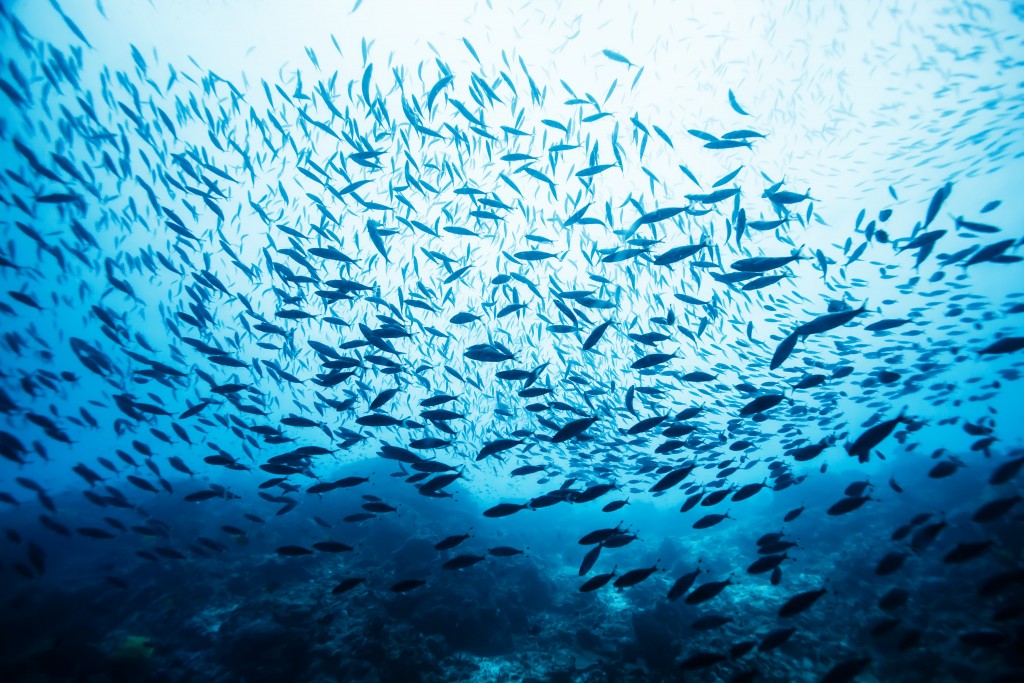The economics of restoring fish populations

By the Bloomberg Philanthropies Environment Team
World Oceans Day is usually a time for us to get a glimpse of the oceans and the life within them, in all its variety and beauty. But this year, it should also be a time for us to brush up on our economics and do some business planning. Last week, just in time for World Oceans Day, a collection of new research was released at The Economist magazine’s World Ocean Summit that shows more clearly than ever the contributions our oceans make to our economies and societies. The Ocean Prosperity Roadmap: Fisheries and Beyond is aimed at decision-makers across the globe in both the public and private sectors. Taken together, this new research shows that if we manage them like the valuable assets they are, the oceans can continue to provide us with food and livelihoods, playing a key part in feeding the 9+ billion people we expect on the planet in the coming decades.
Already, three billion people rely on seafood as a major source of protein, and as the world’s population grows that number will only increase. But under our current management regimes, approximately 76 percent of the world’s fish stocks have already been taken to their limits. Clearly, business as usual is not going to get us where we need to go.
But we do have a choice. New research by scientists and economists from the University of California Santa Barbara (UCSB), Environmental Defense Fund, and the University of Washington on The Potential for Global Fish Recovery: How Effective Fisheries Management Can Increase Abundance, Yield and Value shows there are substantial benefits to be gained if we manage our fisheries more sustainably, including higher profits, more fish to feed the world, and more fish in the sea.
Based on data from over 4,000 fisheries – representing over 75 percent of the world’s catch – this research suggests that if we shift to sustainable fisheries management, within 10 years we could increase profits in the fishing sector by $51 billion a year, and over the long term global fish production could rise by 14 percent, providing an additional 12 million metric tons of seafood for a hungry world.
Those are pretty striking results. The question is, what would it take to get us there? Do we know enough about the types of policies and practices we need to put in place to make these changes? The answer is yes – the basics of effective fisheries management are well understood. Key elements include giving fishers rights over their own resources, as well as setting and enforcing science-based catch limits, setting aside areas where fish can recover, and reducing fishing pressure if stocks become depleted. These are exactly the types of solutions our partners Rare, Oceana and Encourage Capital are implementing through the Vibrant Oceans initiative, which is designed to promote sustainability in large and small scale fisheries, and to increase the flow of private capital into the sector to support this transition in Brazil, Chile and the Philippines.
The next logical question is, how much will that all cost? Just as with any business, there are costs to making improvements. But a second paper from UCSB on the Country-Level Costs vs. Benefits of Improved Fishery Management shows that while the costs of improving management can be substantial, benefits exceed costs in every fishing country in the world. Results varied, but the average benefit-cost ratio exceeds 10:1 – not a bad return on investment.
Of course, not every country is starting in the same place. Countries like the United States are already showing progress in recovering their fisheries, with strong management regimes in place. A new Fisheries Governance Survey by the University of Washington analyzes the effectiveness of fisheries management in 28 countries, representing more than 80 percent of the world’s total catch. For countries with relatively low management capacity, the survey offers insights into where improvements can be made that would boost overall productivity.
Taken together, this research shows us that every fishing nation stands to benefit from reform, and that the benefits of those reforms outweigh the costs of implementing them. Unsurprisingly, those countries with the most room for improvement in their governance systems are also those with the greatest economic upside. In countries like Brazil, where current capacity is low but the government has made serious commitments to implement an ambitious fisheries management plan, the potential upsides are clear.
So, on this World Oceans Day, not only can we celebrate the beauty and mystery of the oceans, but thanks to these exciting new analyses, we should also think of them as the assets they are, and plan our investments accordingly.